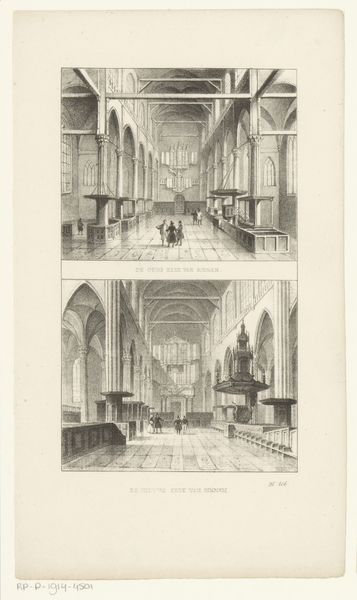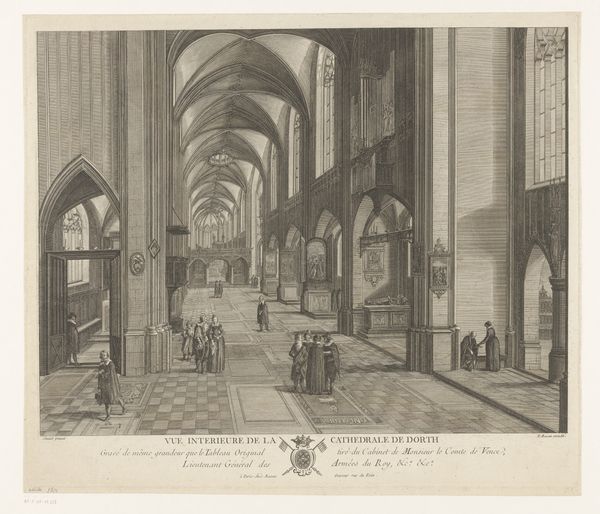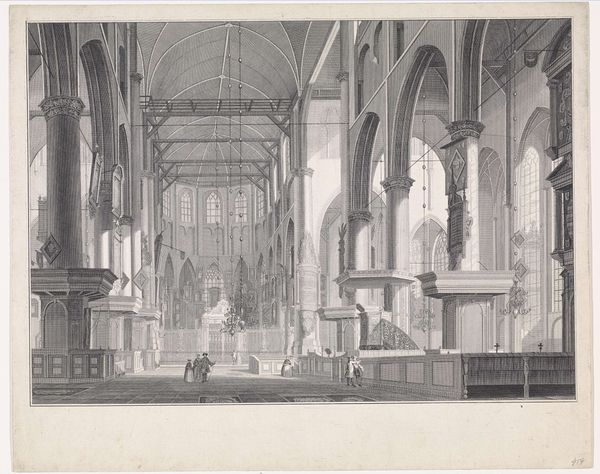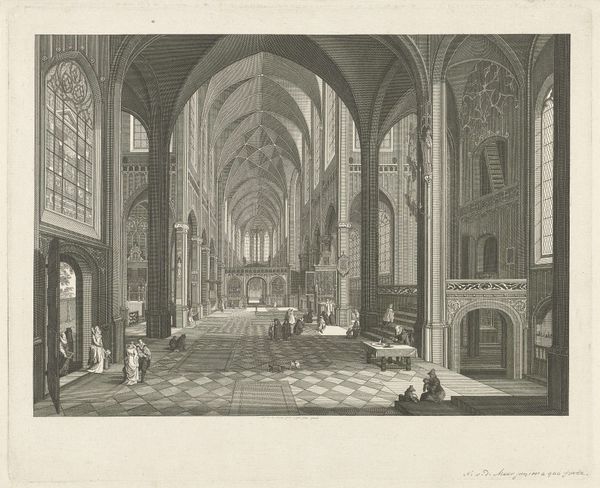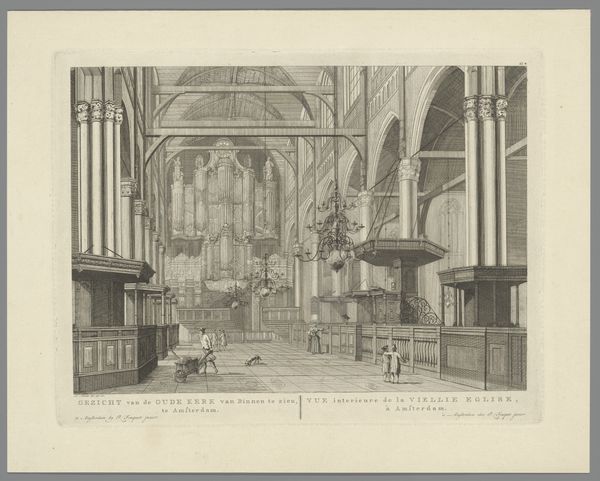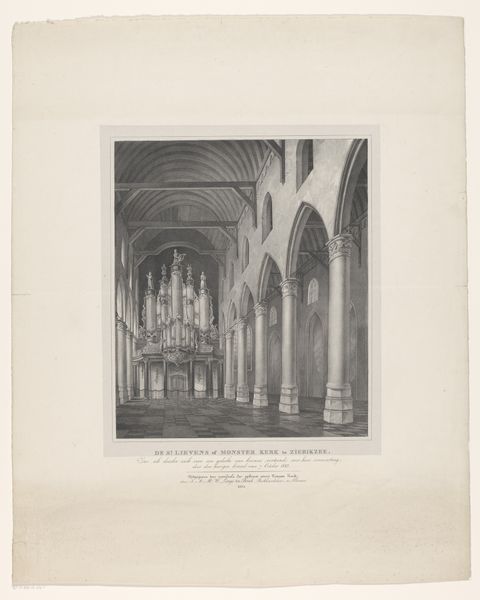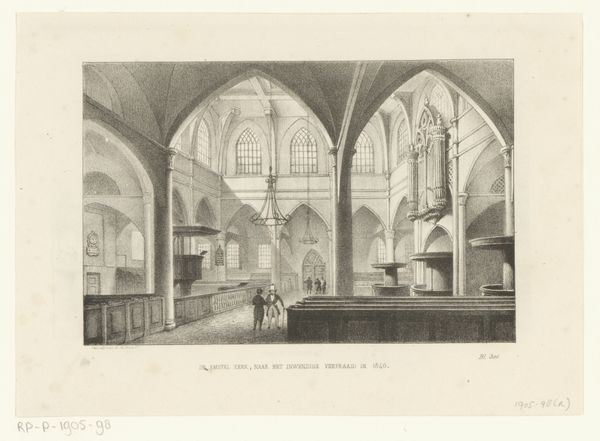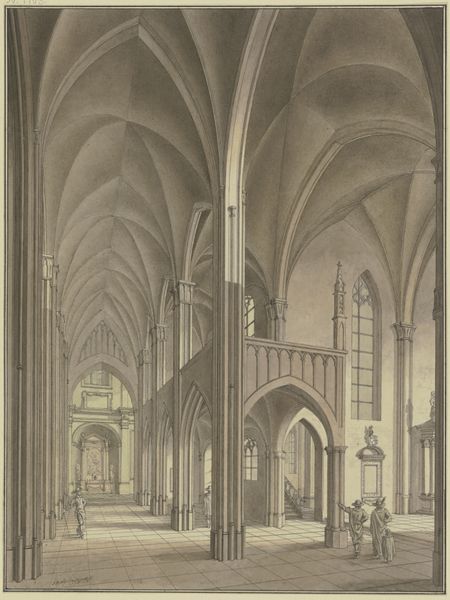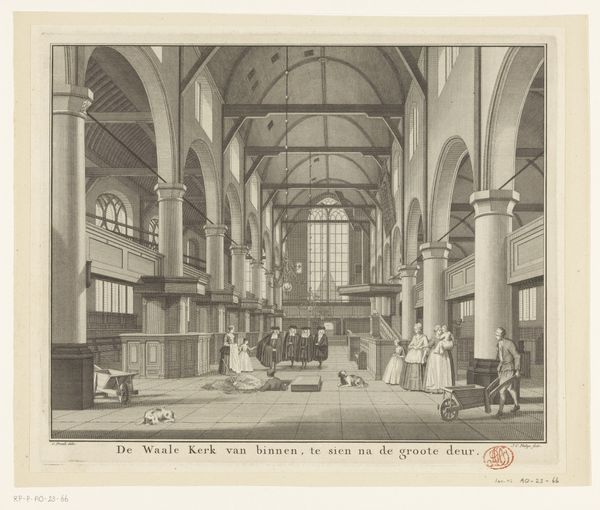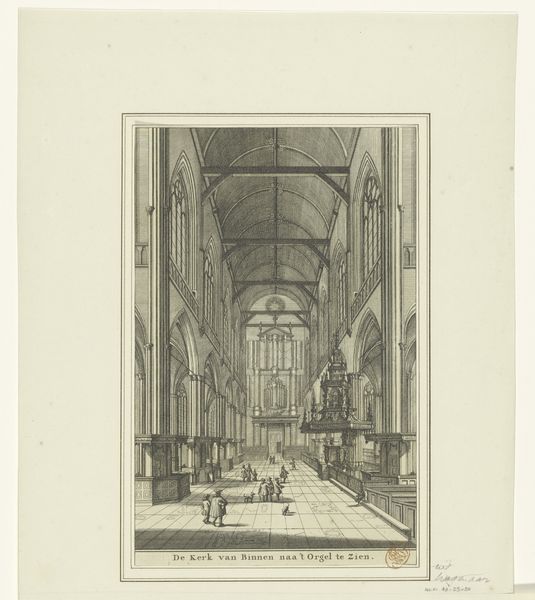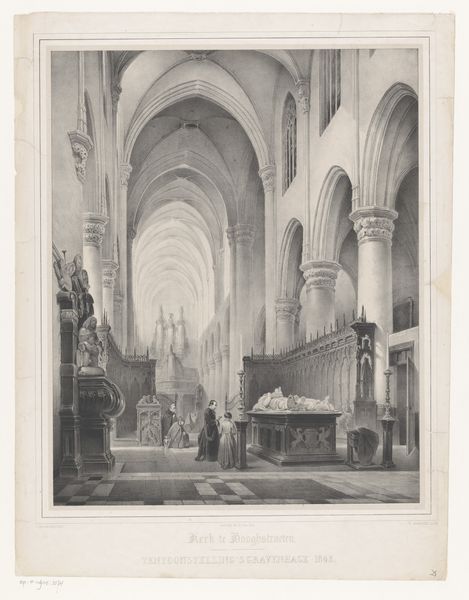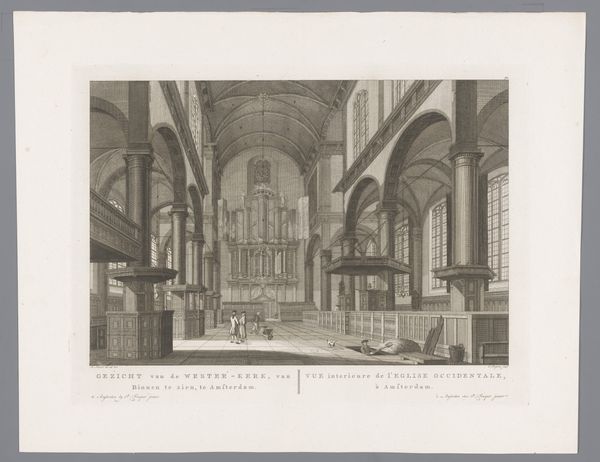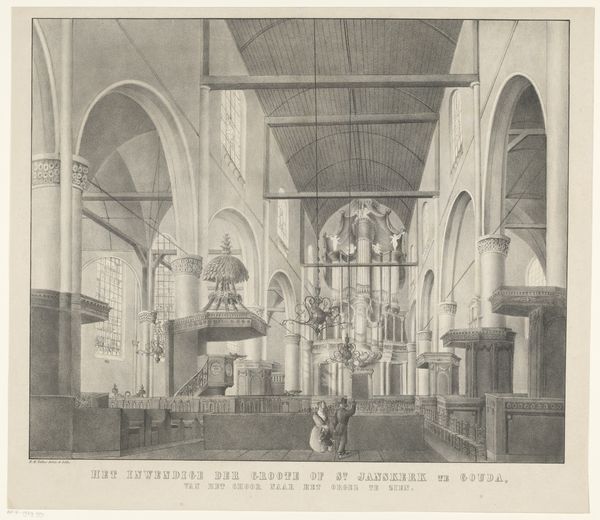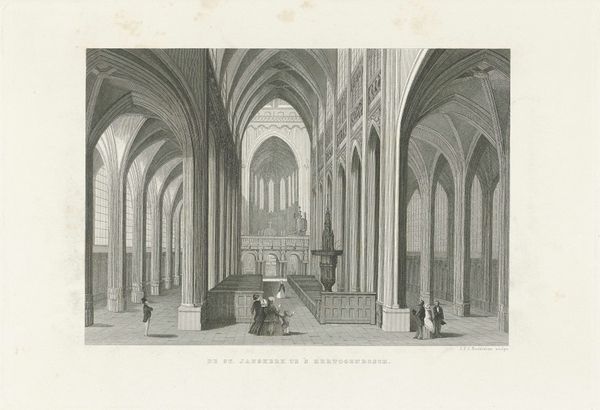
drawing, tempera, print, engraving
#
drawing
#
neoclacissism
#
tempera
# print
#
landscape
#
geometric
#
engraving
Dimensions: height 282 mm, width 388 mm
Copyright: Rijks Museum: Open Domain
Hermanus Petrus Schouten created this print of the interior of the Nieuwe Kerk in Amsterdam. The printmaking technique gives the image a graphic quality with distinct lines and details. Schouten employed the technique of etching and engraving to produce this detailed image. The lines you see, defining the architectural structure and interior elements, are incised into a metal plate. Acid is then used to bite into these lines, allowing them to hold ink. This is then transferred to paper. The resulting image captures the grandeur and scale of the church's interior. Printmaking in Schouten’s time was not only a means of artistic expression but also a form of mass production, making images accessible to a broader audience. It democratized art by moving it away from unique, handcrafted objects to reproducible items tied to wider social issues of labor, politics, and consumption. Understanding the printmaking process allows us to appreciate Schouten’s technical skill, and how these processes have imbued the artwork with social and cultural significance.
Comments
No comments
Be the first to comment and join the conversation on the ultimate creative platform.
